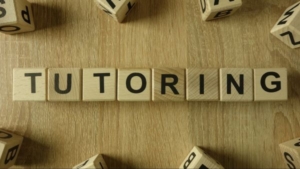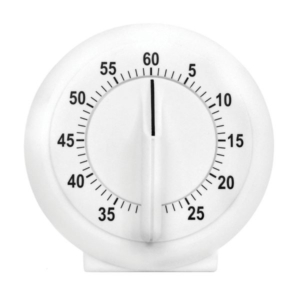The start of a new year often inspires us to commit to new habits, practices, and ways of life to improve ourselves. However, studies have shown that resolutions often fizzle out after a month, or sometimes even in a matter of days or weeks.
Our Shine Bright & Start Strong Series will provide content all month long focused on how to set goals, improve organizational skills, and create better study habits so our students can start 2022 on the right foot and find lasting momentum to carry them well beyond January.

Make SMART Goals:
For any goal that you’re setting, it’s best to create goals that are SMART: Specific, Measurable, Attainable, Relevant/Realistic, and Timely. These can be New Year’s Resolutions, or goals you set for yourself each week or month. And while SMART Goals work in any area of life, we’re going to explain how they can help you in your academic, music, language, or artistic pursuits.
Specific: Make your goal as specific as possible. Many people have a tendency to make general goals or resolutions like “I want to learn a new instrument” or “I want to get better grades.” These goals are hard to accomplish because there are no specifications. It’s fine to start with a general idea like the ones listed above, but then dig deeper and define your goal more clearly.
- “I want to learn a new instrument” becomes: I want to learn how to play guitar
- “I want to get better grades” becomes: I want to get better grades in my math and science classes
Measurable: A goal is more easily accomplished when there are metrics. Metrics give you a number or place to work towards and a point of comparison. To explain this better, we’ll use our goals from before.
- “I want to learn how to play guitar” becomes: I want to learn how to play one song on guitar. Suddenly our general goal is even more specific! We can see an outcome- learning one song. If you’re a beginner who has never played guitar before, this goal is realistic and possible.
- “I want to get better grades in my math and science classes” becomes: I want to get B’s in my math and science classes. Now, you’ve defined the subjects you want to get better grades in and the grades you want to achieve.

Attainable: Make sure your goal is attainable. If your goal isn’t realistic or attainable, it might be discouraging if you aren’t able to achieve it. For example, if you have never played guitar before, you probably shouldn’t expect to play guitar like a rockstar in your first few months of learning the instrument.
If you struggled in math and science classes last semester and you don’t remember the previous lessons, it might not be attainable to achieve A+ grades in those classes.
It doesn’t mean those things aren’t possible at some point, but be realistic about your progress and starting point in order to set goals that you can actually accomplish.
Relevant/Realistic: It’s worth asking yourself at any stage of the goal-setting process if your goals are relevant and realistic to you, your stage of life, and your lifestyle.
The way to answer those questions and to get to the heart of your goal reasoning is to ask yourself, why. Why do you want to set this goal? Why is this goal important to you?
If your answers have more to do with other people, is it really a goal worth pursuing? For example, if your goal is to learn a new instrument because you want people to be impressed with you, that might not be sustainable motivation.
That could be one reason you want to learn a new instrument, but maybe you also dream of joining a band. Maybe you want to challenge yourself and learn something new.
Those are perfectly good and relevant reasons, but just be clear in your intentions because those will drive you to keep working towards your goal even when it’s challenging.
If you are a student and reading this, you might feel like some of your academic goals are determined by your parents. You might think because other people want you to improve your grades the goal isn’t relevant to you.
If you feel this way, I encourage you to think about how improving your grades might help you achieve your own goals. Do you want to go to a specific college? Do you have a dream job?
You also have the power to determine if the goals are realistic. Maybe your parents want you to be valedictorian, but you know you would be adequately challenged working towards a 3.0 GPA. Talk with your parents and set a realistic goal that will challenge you and allow you to work towards your own dreams.
Timely: The final step in making a SMART goal is setting a time frame in which you can reasonably achieve your goal. Be realistic and honest with yourself about your starting point. Also be realistic and honest about how much time you’re going to spend working towards your goal each day and each week. So let’s make our original goals timely:
- I want to learn how to play one song on guitar by June 1, 2022. Make sure you also set a reasonable timeline for how often you will practice, and how frequently you’ll meet with a guitar teacher who can help you learn the song.
- I want to get B’s in my math and science classes in the spring semester. This is a great goal! Again, make sure you are putting in time throughout the semester to achieve this goal. Schedule regular sessions with a tutor early in the semester to start working towards your goal right away.

Additional Tips to Make Your SMART Goals Stick:
- Tell someone about your goals: Telling a trusted friend, tutor, coach, teacher, parent, or mentor is important when setting your goals because they can keep you accountable. They can provide motivation when you don’t feel like working towards your goal and remind you why you set your goal in the first place.
- Evaluate your progress regularly: Use a calendar, journal, or spreadsheet to track your progress. Check in regularly to determine if you will be able to achieve your goal within your set time frame. Your goal and time frame can help you determine how often you assess your progress, which could be every day, once a week, or once a month.
- Don’t be afraid to adjust your goals: Regular evaluations will help you determine if you’re on track to achieve your goal within your set time frame.
- If you haven’t been practicing guitar regularly, perhaps you need to set a new completion date. Again, be realistic about your time and also make the necessary adjustments to achieve your goal. Perhaps you need to commit to practicing more often in order to learn the song on guitar. Set new practice times and stick to them.
- Adjusting your goal is also important if you find you can exceed it or reach it in less time than you thought. Maybe halfway through the semester you realize you’ve gotten A’s on all your math and science exams. Don’t be afraid to change your goal of getting B’s to getting A’s in those classes. Write it down, tell your friend, teacher, or mentor, and track your progress towards that goal the same way as before.
- Reflect on your goals after you achieve them: After you’ve achieved your goal, celebrate your success and reflect on it! Writing down your thoughts in a journal can be helpful. How did you feel working towards your goal? How did it feel to achieve your goal? If you had to adjust your goal, how did that make you feel? Do you want to expand upon your goal, and use it to set new ones?
Our series continues with how to be more organized and efficient and cultivating a better mindset to achieve success.





